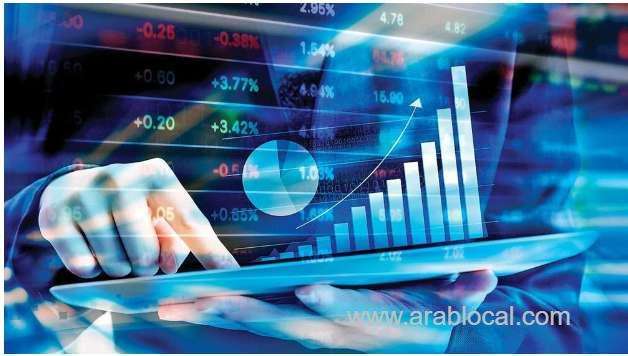US stocks fell sharply on Wednesday (November 9) as investors digested the results of the US midterm elections and the possibility of a deadlocked government as the expected “Republican wave” did not materialize, the Dow Jones Industrial Average fell by 2% while the S&P 500 lost about 2.1% and fell The Nasdaq Technology Index increased by 2.4%.
While there are still some states left to announce seats in both chambers, political analysts' expectations did not show a Republican wave, while the GOP appeared poised to win narrow control of the House of Representatives, with Arizona's race leaning towards the Democrats and Nevada leaning toward the Republicans while tied. In Georgia, the run-off will take place in four weeks.
Midterm Elections
President Joe Biden breathed a sigh of relief as he was backed enough by the results to publicly announce his intention to run for a second term in the White House, and said, "It was a good day for democracy."
The dollar reacted positively on Wednesday but rebounded slightly on Thursday. Analysts believe that the election results are unlikely to cause waves in foreign currencies. However, the reaction in the stock market was unusual, as the government is seen to be suffering from Inertia is mostly cited as a positive for stocks because it makes it less likely that market-disrupting legislation will pass, and instead, major indices suffer their worst day-by-day losses of any US election in a decade.
Interest Rates come into focus
However, analysts noted that the strong negative reaction from stocks and the subdued response from the dollar and Treasuries could dampen expectations of future interest rate hikes now that the election "noise" has come to an end.
Regardless of who wins or loses, the markets are expected to rise, however, what most investors are focusing on this week is not the midterm elections but the October inflation data, especially since Fed Chairman Jerome Powell's tone last week did not align well with markets, so inflation data and how that will move the Fed will be a bigger concern at the moment.
The consensus view is that inflation will remain flat, although the headline annual rate of inflation is expected to ease to 8% in October from 8.2% in September, and the monthly rise is expected to be a brisk 0.6% after rising 0.4% in September. September.
The headline CPI in the US is expected to rise to 0.6% m/m which is the highest reading in four months, any reading that meets or exceeds expectations will likely increase the market's expectations of a Fed rate hike which will boost the dollar and boost US interest rates.
Interest rate increases cause panic
After the Fed announced its decision on November 2nd, US stocks rose briefly but then the expectations of Powell's interest rate path sent the market back into panic.
At the beginning of this month, the Federal Reserve raised interest rates by 75 basis points to reach between the range of 3.75% - 4% as expected, the highest rate on the federal funds since January 2008, in addition, the fourth consecutive rate hike by 75 basis points. It is off the steepest trajectory of price hikes since the 1980s.
The pace of interest rates made US stocks rebound quickly at that time but fell back, at that time, many analysts thought it was a "pessimistic" decision because the Fed's consideration of the delayed impact of continued tightening of monetary policy on economic and financial development is the best evidence.
And we've known for a long time that the Reserve Bank has always been striving for that level of interest rates that is just right to be constrained, however, after Reserve Bank Chairman Powell held a press conference that changed the market situation, Powell not only indicated that the Reserve Bank Not only does he consider halting the rate hike but also ensures that the final interest rate level will be higher than previously expected.
Speaking as the market raised the end of this rate hike cycle to 5% -5.25%, well above the 4.6% outlined in the September point chart, market experts commented that Powell's tone is too harsh which means the bank is still obsessed with fighting inflation and the final interest rate level will be Higher than previously expected and there is no peaceful sign that the bank is ready to suspend interest rate hikes.










